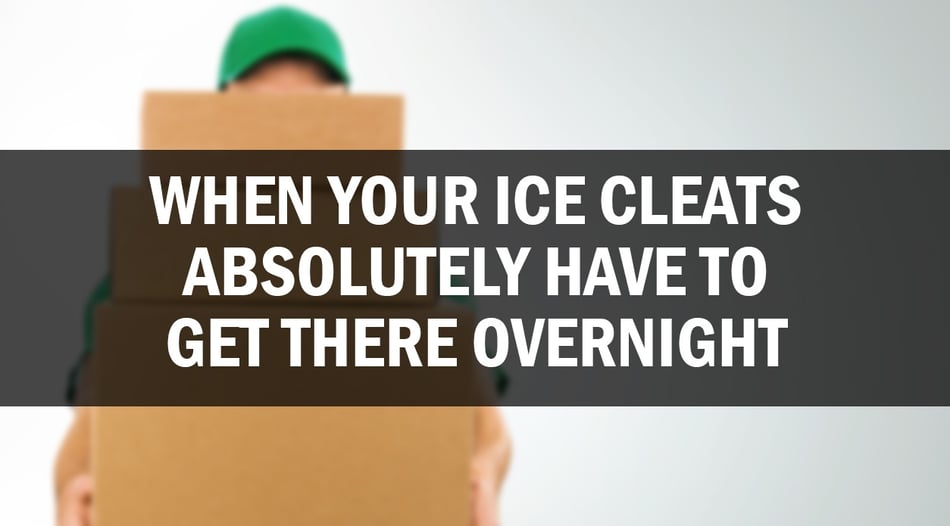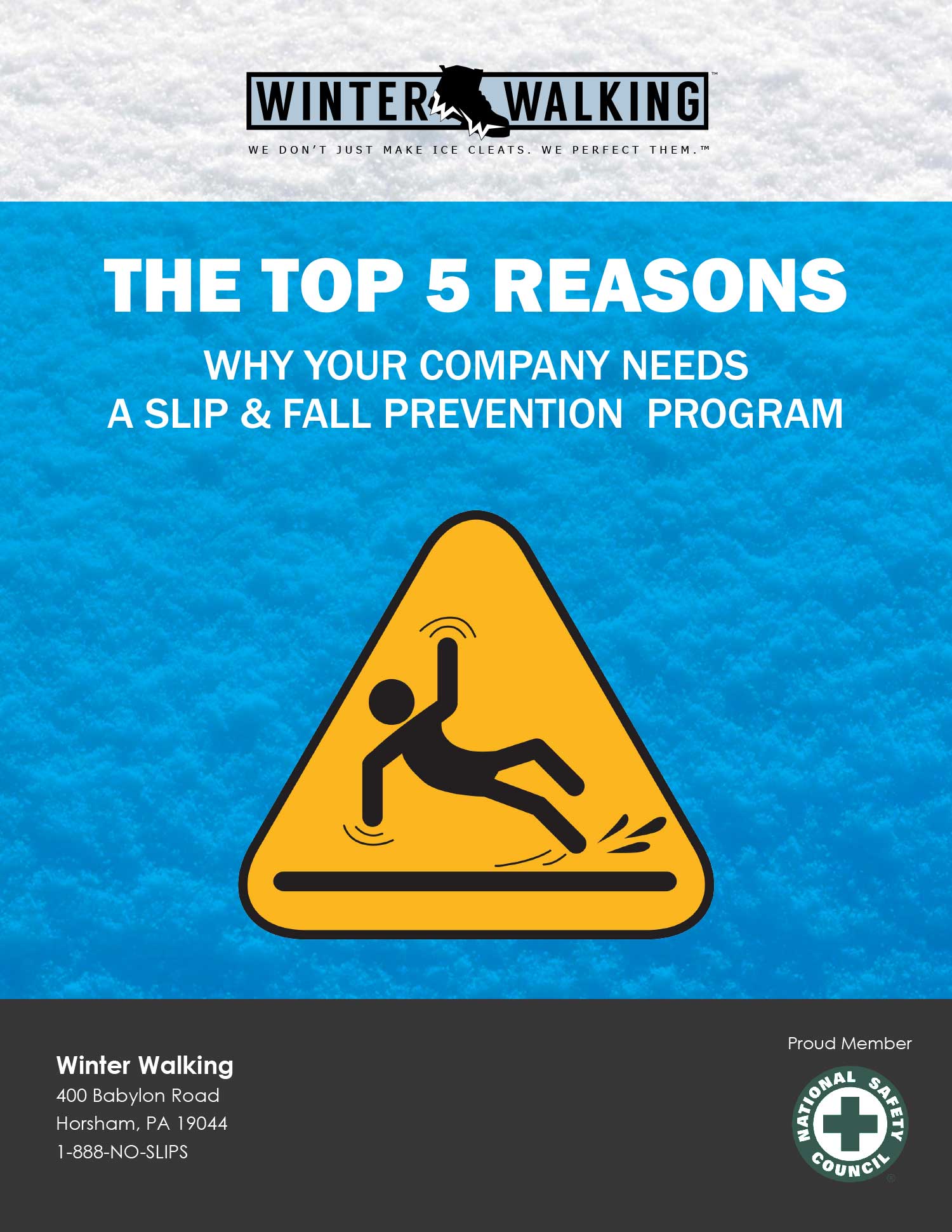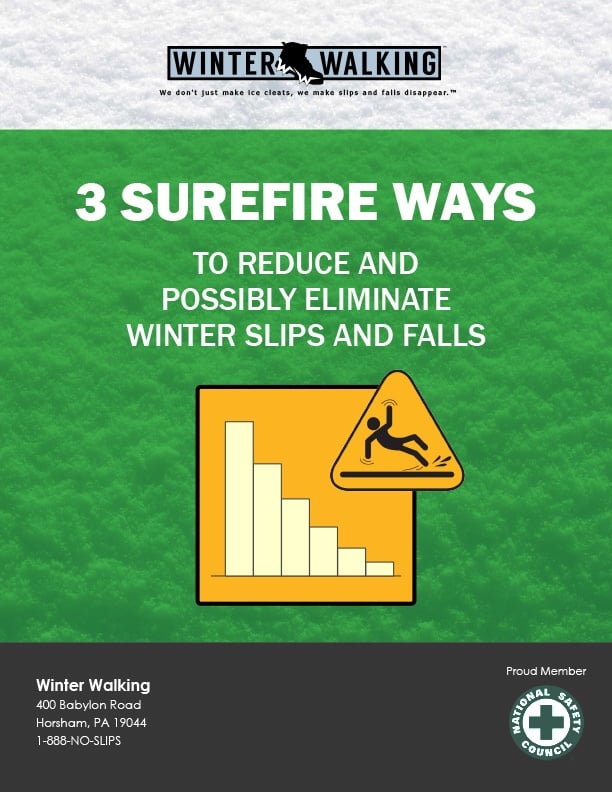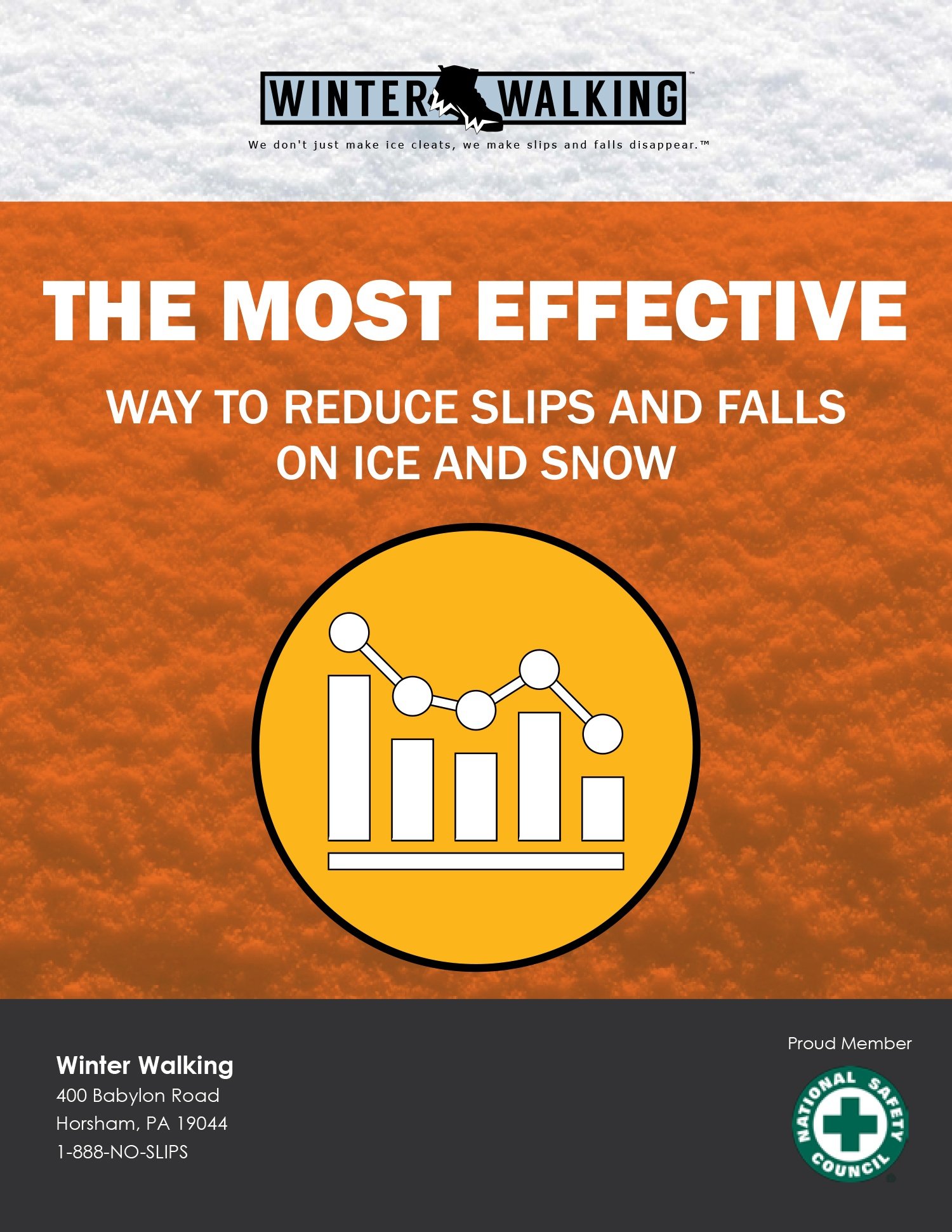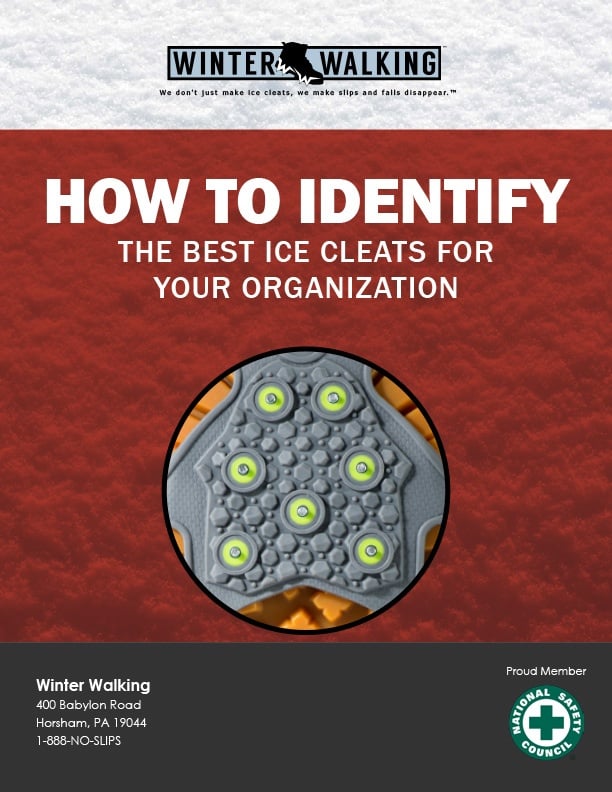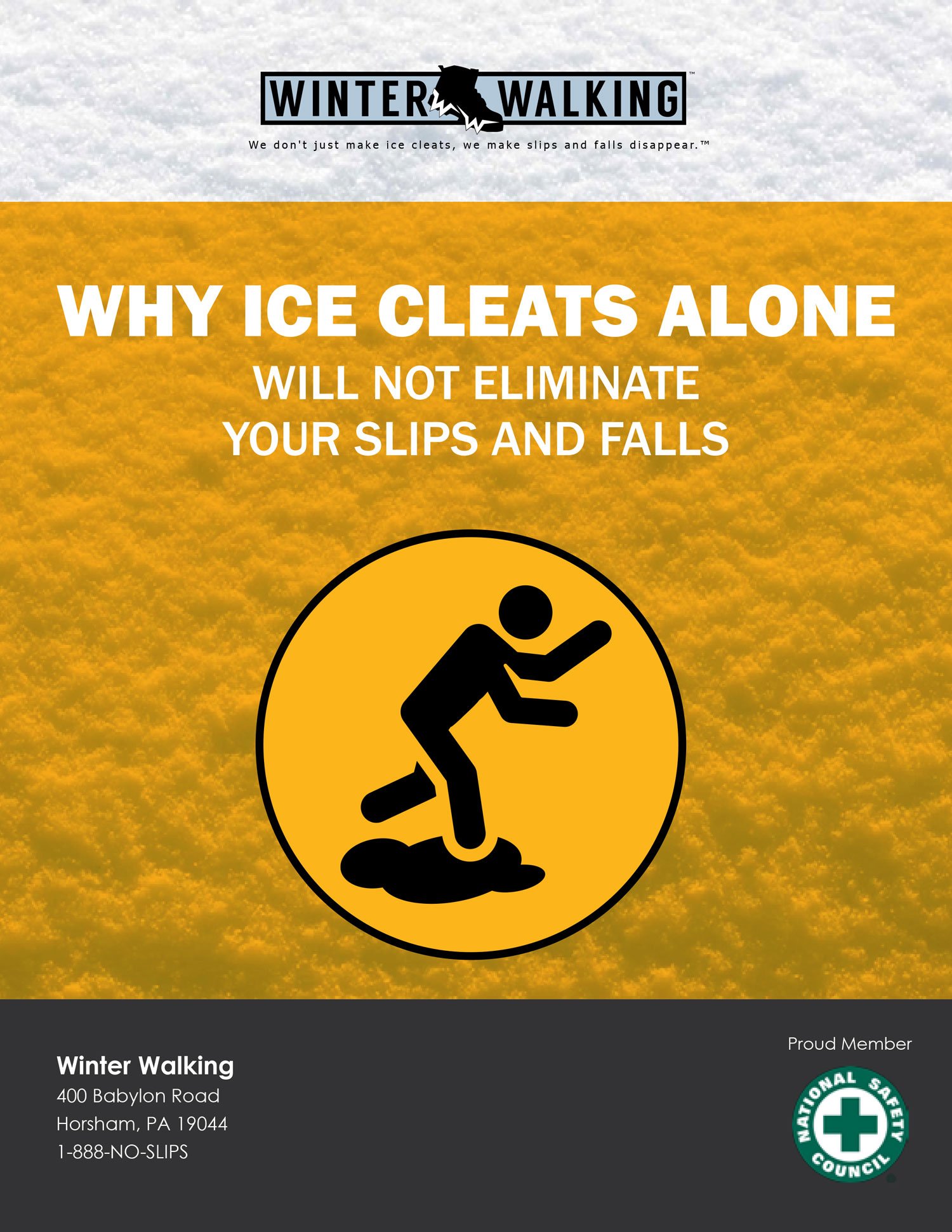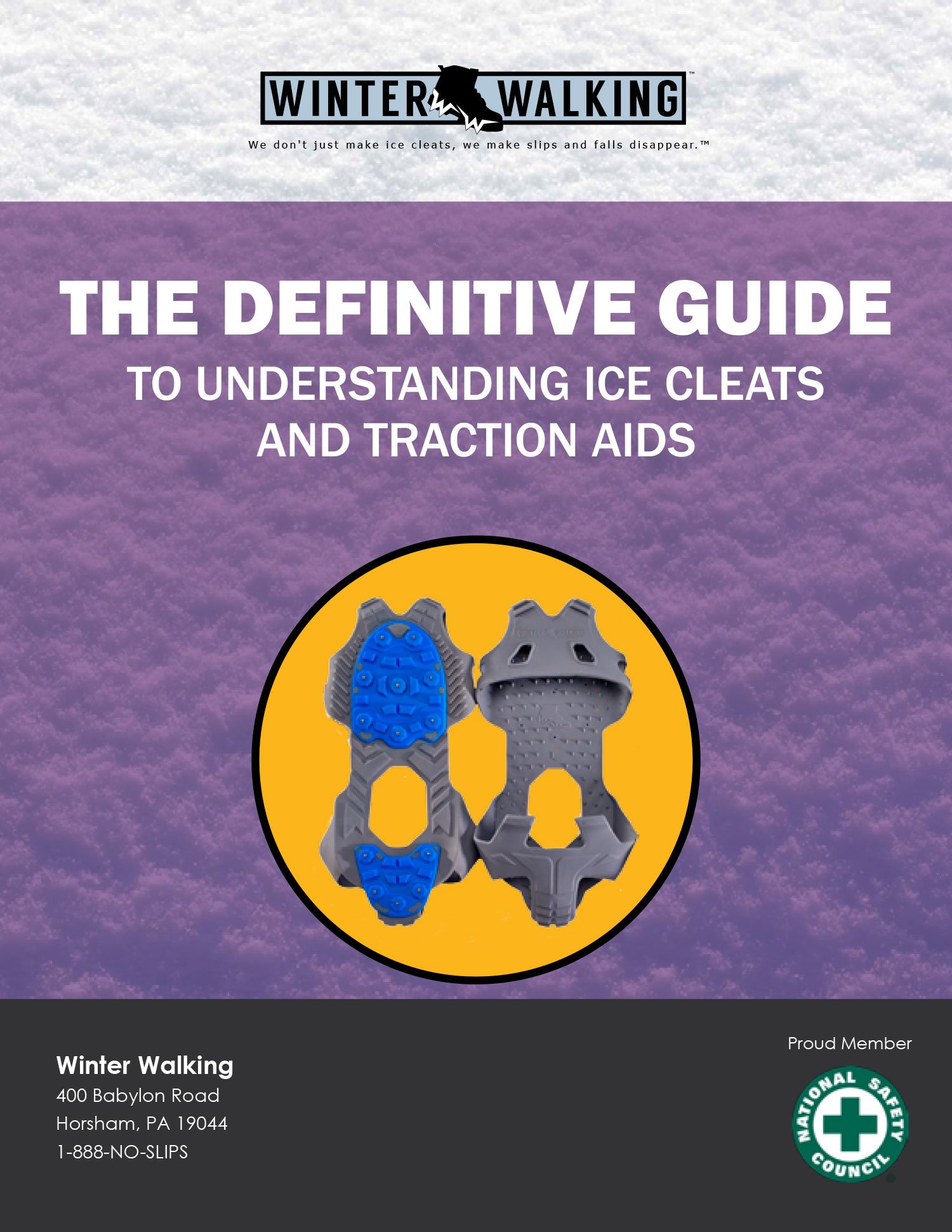If you’re willing to pay a high premium for shipping overnight, you can get just about anything you want, when you want it.
Now is the time of year when “just ship it overnight” quickly becomes the most often heard statement I hear. Of course you can have ice cleats or traction aids shipped overnight, right? Well, the answer is both yes and no.
In some cases, your order will be delivered on time and it won’t reflect any delayed decision-making.
However, what happens to your employees and your safety record when after paying for shipping overnight, the delivery fails to be delivered the next day? This happens far more often than most people think.
Why? One Word: Weather.The ice or snow can quickly impact your area, and that means your delivery may or may not get delivered on time.
The snow and ice that’s affecting your company’s operations and putting your employees at a heightened risk of slip and fall incidents also affects the operations of courier services, like UPS, FedEx and USPS, in similar ways.
If the ice and snow is that bad in your area, chances are you will not get your overnight shipment the next day as promised.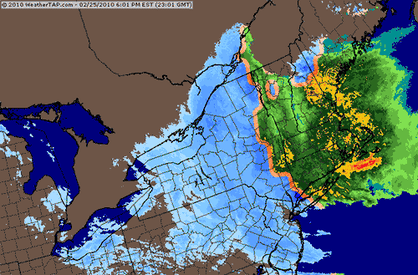 Making matters worse, you paid extra for expedited shipping, right? If you don’t get your delivery on time due to weather, often the courier services will keep the extra money you paid for overnight shipping and deliver your goods when they can safely do so.
Making matters worse, you paid extra for expedited shipping, right? If you don’t get your delivery on time due to weather, often the courier services will keep the extra money you paid for overnight shipping and deliver your goods when they can safely do so.
There’s no getting around it. Winter weather causes all kinds of issues – and shipping goods (including ice cleats) is no exception:
- Icy and snowy conditions sometime cause flight delays and cancellations.
- Ice and snow causes vehicle accidents.
- All manner of seasonal weather can result in your overnight shipment not arriving as promised.
- In short, when blizzards and ice storms hit, deliveries get delayed or cancelled.
Educated safety professionals shouldn’t rely on overnight shipping. If you do take your chances, your employees (and safety record) will pay the price. But, with proactive planning, you’ll save yourself a lot of shipping costs, stress and even slip and fall accidents.
Thank you for reading. If you found value in this post, please share it with your LinkedIn network or simply “like” it.
Bill Coyne is the VP of Sales for Winter Walking. He has been helping organizations across a wide variety of business sectors eliminate workplace slips and falls incidents in ice and snow for over 20 years. Email Bill bill@winterwalking.com or visit www.winterwalking.com for additional helpful information and resources.

